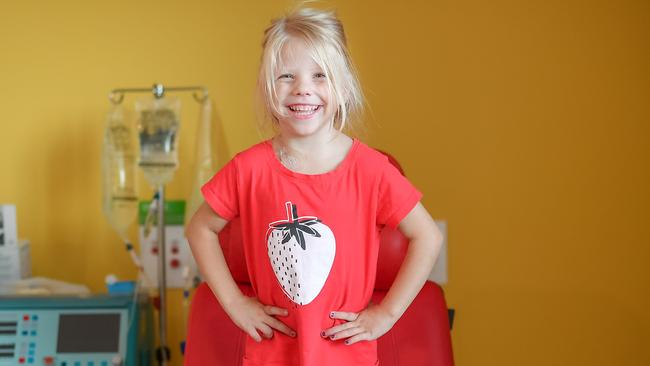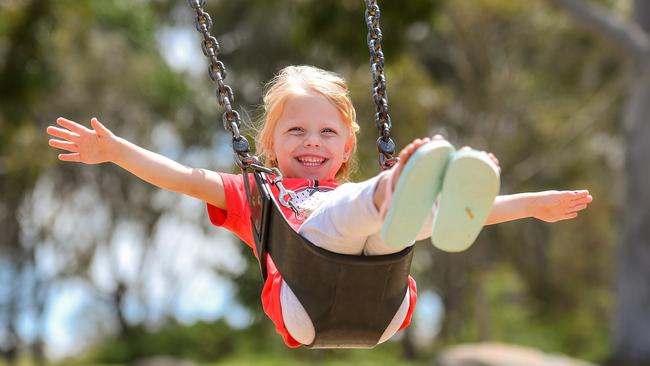Kidney advance a step toward personalised medicine
Melbourne researchers have replicated part of a child’s kidney in 3D, paving the way to test new personalised disease treatments in a world-first model.

VIC News
Don't miss out on the headlines from VIC News. Followed categories will be added to My News.
Melbourne researchers have replicated part of a child’s kidney from her stem cells, paving the way to test new personalised disease treatments.
A blood sample from Charlotte Matthew, 4, who has congenital nephrotic syndrome, was the magic ingredient for this world-first disease model.
Kidneys filter waste products from the blood which are then excreted in urine, and also regulate what the body should retain.
ORGAN DONATION DISCUSSIONS TO BECOME AUTOMATIC
MINI ORGANS FROM STEM CELLS UNCOVER KIDNEY DISEASE
PROGRAM AIMS TO TACKLE KIDNEY TRANSPLANT FAILURES
But faulty filtering resulting from Charlotte’s condition causes her to lose too many important proteins, hormones and vitamins.
One of the Wonthaggi girl’s kidneys was removed soon after birth. She has since had to rely on dialysis.

Charlotte’s remaining kidney is gradually being damaged and Royal Children’s Hospital doctors are preparing her for a transplant.
Researchers led by the Murdoch Children’s Research Institute have used Charlotte’s stem cells to create a personalised copy of her glomerulus, the damaged part of her kidney’s waste filtration system.
That development was made possible by a breakthrough three years ago, in which the institute’s Professor Melissa Little devised a way to turn stem cells into working kidney cells.
Institute researcher Dr Cathy Quinlan, Charlotte’s nephrologist, said the development was an important step towards personalised medicine for both rare kidney conditions and the most common type of adult kidney failure, diabetic nephropathy.

Dr Quinlan said: “The idea in studying children like Charlotte, and using models of her kidney disease, is that we start moving towards finding cures. We can also use this model to try to find drugs that will make a huge difference for adults with milder forms of disease.”
The study, which also involves the Royal Children’s Hospital, the University of Melbourne and the University of Manchester, has been published in the journal Nature Communications. The project has been financed by the RCH Foundation and the National Health and Medical Research Council.
Charlotte’s mother, Jess Taylor, said the function of her daughter’s remaining kidney had halved over the past year and was now operating at barely 10 per cent capacity.
A transplant is planned for next year, but in the meantime the family must undertake a twice-weekly four-hour round trip for dialysis.
“This discovery won’t help her,” Ms Taylor said. “But we said yes so that no other child has to go through what Charlotte has. If they could cure kids, or at least stabilise them, that would be amazing.”


